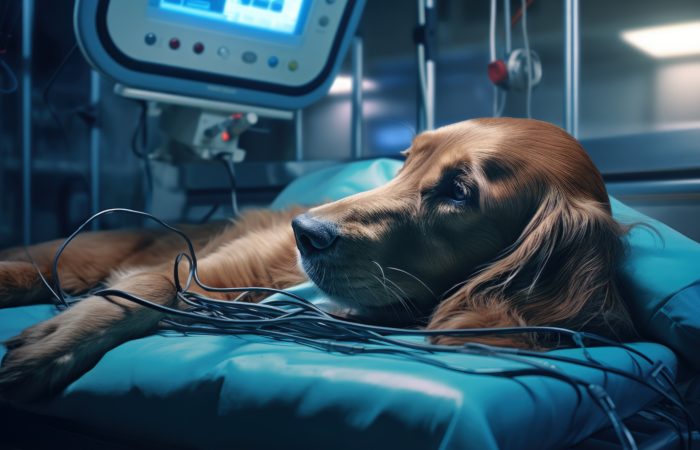Medical Marvels: Advanced medicine skills for RVNs
This veterinary thought exchange online tutored course takes a more detailed look at the common medical conditions that affect our patients, and how we can manage them as nurses. Medical nursing is a huge area of potential for the veterinary nurse – we can really make a difference to these patients! They often have complex conditions and comorbidities, requiring a number of diagnostic tests, procedures and potentially length hospital stays. The veterinary nurse plays an integral role in managing these patients – from spotting the signs of disease or deterioration, collecting samples and performing diagnostic tests, to caring for these patients in the hospital and beyond.
In this course we will examine the common diseases affecting our patients – including endocrine, renal, respiratory, gastrointestinal, hepatic and haematopoieitic disorders. We will look at how these diseases affect our patients, and how we support these patients as nurses.
The course is run by Laura Jones (RVN and Veterinary Technician Specialist in Small Animal Internal Medicine) over a eight week period, and takes around 8 hours to complete. It is made up of webinars, and a real-time discussion forum for you to ask questions with the course tutor and share cases you may be nursing in your own clinic.
Access to this course is for 12 months from the start of the course going live on our website. The discussion forum will be monitored for the course duration only.
Course Content
- To understand how diabetes mellitus affects cats and dogs
- To recognise the difference in pathophysiology and treatment between diabetes mellitus and diabetic ketoacidosis
- To understand the nursing requirements for diabetic and DKA patients
- To be able to perform different diagnostic tests for patients with thyroid and adrenal disorders
- To understand the nursing considerations for patients with hypo and hyperthyroidism
- To understand the nursing considerations for patients with hypercortisolism and hyperadrenocorticism
- To understand the common GI disorders encountered in practice
- To understand how to support patients during gastrointestinal endoscopy
- To appreciate the nursing care considerations for GI disorders, including nutritional management
- To understand the common hepatic disorders encountered, including chronic hepatitis, portosystemic shunts, cholangiohepatitis and hepatic lipidosis
- To understand the diagnostics performed in liver disease, and what they mean
- To be able to plan nursing care for patients with liver disease
- To understand how to triage and assess respiratory emergencies
- To appreciate the common respiratory diagnostics performed, and how to support the patient during these investigations
- To understand how to nurse respiratory patients
- To understand the difference between chronic kidney disease and acute kidney injury
- To appreciate the different diagnostic tests performed on these patients, and why
- To be able to plan nursing care for patients with renal disorders
- To appreciate how anaemia affects our patients, and how to nurse anaemic patients
- To understand common bleeding disorders and how to nurse the bleeding patient
- To understand which blood products are used for these patients and why
- To be able to plan the nursing care for 4 patients with different medical disorders.
Meet the speakers

Laura Jones
RVN & VTS (Small Animal Internal Medicine)
already purchased this course? login to your vtx account for access
login

